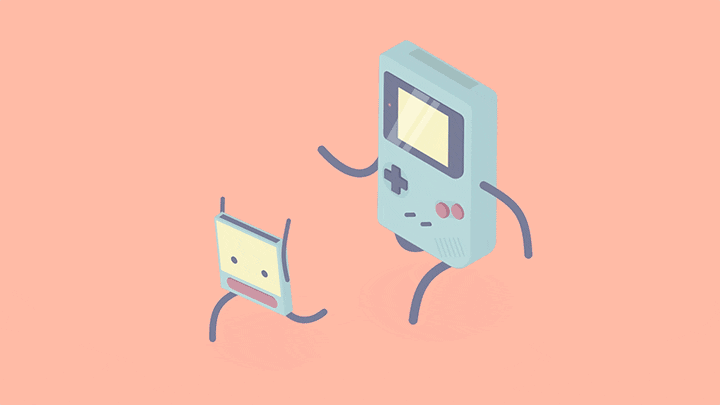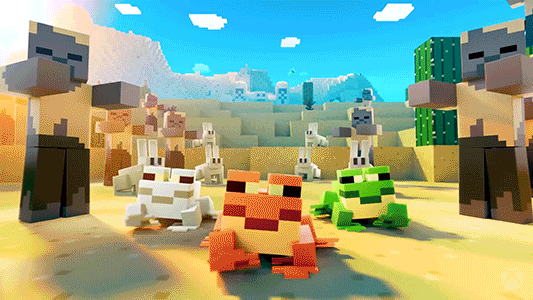The video game industry has come a long way since the first commercial game was released in the 1970s. Today, gaming is a global phenomenon, with millions of players across the world spending countless hours immersed in virtual worlds. The industry's growth shows no signs of slowing down, with video game revenue expected to surpass $365 billion in 2023. As game development becomes increasingly complex and sophisticated, the choice of programming language can make all the difference. In this blog post, we'll explore some of the best programming languages for game development and why they're a great choice for building the next generation of video games.

Game development is the process of creating video games. It involves designing the game concept, creating the graphics and sounds, writing the code that makes the game work, and testing and debugging the game to ensure that it's fun, engaging, and bug-free. Game development requires a combination of creative and technical skills, and often involves teams of artists, programmers, and designers working together to create a cohesive and entertaining experience for players. The game development process can take months or even years to complete, depending on the scope and complexity of the game.
A gaming platform is a piece of hardware or software that allows players to play video games. Gaming platforms can include consoles, computers, mobile devices, and online gaming services.
Here are some of the most popular gaming platforms:
Each gaming platform has its own strengths and weaknesses, and the most popular platform can vary depending on factors such as region, age group, and gaming genre preferences.
A game engine is a software framework or development platform that is designed to help developers create video games more efficiently. Game engines provide developers with a set of tools, libraries, and APIs (Application Programming Interfaces) that they can use to build and manage various game elements such as graphics, physics, audio, and artificial intelligence.
Game engines simplify the development process by providing pre-built components that can be easily integrated into a game, allowing developers to focus on creating the game's unique features and gameplay mechanics. By using a game engine, developers can save time and reduce the amount of programming required to create a game from scratch.
Some popular game engines include Unity, Unreal Engine, and CryEngine. These game engines are used by game developers of all sizes, from indie studios to large AAA game developers. They provide a powerful set of features and tools that allow developers to create high-quality games that can run on multiple platforms, such as consoles, PC, and mobile devices.
Game engines offer a wide range of functionalities that can help game developers create high-quality games more efficiently. Here are some of the most common functionalities offered by game engines:

Several factors can make a programming language suitable for game development:
Performance: Games typically require high performance to run smoothly, with high frame rates and low latency. Therefore, a good game development language should be capable of generating efficient and optimized code, and should also have low-level access to hardware resources such as the GPU.
Ease of Use: Game development can be complex, so a language that is easy to learn and use can help reduce the learning curve and allow developers to focus on game design and development.
Libraries and Frameworks: Game development requires access to libraries and frameworks for tasks such as graphics rendering, physics simulation, and user interface design. A good game development language should have a rich set of libraries and frameworks available to make these tasks easier.
Cross-Platform Support: Games are often developed for multiple platforms, such as PC, consoles, and mobile devices. A good game development language should have cross-platform support, enabling developers to create games that can run on multiple platforms.
Interoperability: It refers to the ability of a programming language to work well with other languages and technologies. In game development, interoperability can be important for integrating various libraries, game engines, and other technologies into a game project. Good interoperability can simplify game development and allow for the integration of a wide range of technologies into a game project, making it an important consideration when selecting a programming language for game development.
Community and Resources: Game development is a collaborative process, and a good game development language should have a strong community of developers who can provide support, share knowledge, and contribute to the development of game engines and libraries.
Based on these factors, some popular programming languages for game development include C++, C#, Java, Python, and Lua. These languages have been used to create many popular games and have strong support from game development communities. However, the best language for game development ultimately depends on the specific requirements of the game and the preferences of the development team.
Programming Language | Pros | Cons | Game Engines* |
C++ | - High performance and low-level access to hardware resources - Strong support from game engines, libraries, and development communities - Cross-platform support - Widely used in the game industry | - Steep learning curve - Memory management can be challenging, leading to potential issues such as memory leaks and buffer overflows - Code can be verbose and difficult to read | - Unreal Engine - Unity - CryEngine - GameMaker Studio |
C# | - Easy to learn and use - Good performance - Strong integration with the .NET Framework - Widely used in the game industry - Cross-platform support through .NET Core and Unity | - Limited low-level access to hardware resources - Limited support from game engines and libraries compared to C++ - May require additional development tools and software, such as Microsoft Visual Studio - Mostly dependant on Unity | - Unity - Godot Engine - MonoGame |
Java | - Easy to learn and use - Good performance - Strong support from game engines, libraries, and development communities - Ideal for Android game development - Cross-platform support through the Java Virtual Machine (JVM) | - Limited low-level access to hardware resources - Garbage collection can introduce unpredictable performance issues - Not widely used in the game industry compared to C++ and C# | - jMonkeyEngine - LibGDX - LWJGL |
Python | - Easy to learn and use - Shorter development time - Good for prototyping and rapid development - Large number of libraries available for game development - Cross-platform support | - Lower performance compared to C++ and C# - Memory management can be challenging, leading to potential issues such as memory leaks - No hardware control - Not widely used in the game industry compared to C++ and C# | - Pygame - Panda3D - PyOgre - Ren'Py (for visual novels) |
JavaScript | - Easy to learn and use, especially for web-based games - Large number of libraries and frameworks available for game development, such as Phaser and Three.js - Cross-platform support through web browsers - Good for prototyping and rapid development - Large community of developers and resources available | - Lower performance compared to native languages like C++ and C# - Limited low-level access to hardware resources - Potential security vulnerabilities due to the language's dynamic and open nature - Limited support from game engines | - Phaser - Three.js - Babylon.js - Construct 3 |
Lua | - Lightweight and easy to embed in game engines - Good for scripting and gameplay logic - Large number of game engines and libraries support Lua - Cross-platform support | - Limited low-level access to hardware resources - Not suitable for developing large, complex games - May require additional development tools and software to integrate with other languages and technologies | - Corona SDK - Love2D - Gideros Mobile - Defold |
* Note that many of these engines and frameworks also support multiple programming languages, so the choice of engine may depend on factors beyond just the language being used.

Python: Python is a popular and easy-to-learn programming language that is widely used in game development, as well as many other areas such as data science, web development, and artificial intelligence. Its syntax is straightforward and easy to read, and there are many resources available online for learning and practicing Python.
Scratch: Scratch is a visual programming language designed for beginners, especially children. It allows users to drag and drop blocks of code to create games and animations without having to worry about syntax and typing.
JavaScript: While JavaScript can be more complex than some of the other beginner-friendly languages, it's often recommended for those interested in web-based game development, as it's the language of the web.
Lua: Lua is a lightweight scripting language that is often used in game development, and is known for its simplicity and ease of use. It's also used in popular game engines like Corona SDK and Love2D.
Developing Android Apps for Gaming Course
At Bilginç IT Academy, we provide training for all the programming languages mentioned above. Whether you're a beginner or an experienced developer, our courses can help you master the skills needed for game development. If you're passionate about gaming and want to be a part of this exciting industry, get in touch with us today to find the course that's right for you. With the gaming industry continuing to grow, now is the perfect time to start your journey and turn your passion into a career.
With our broad selection of IT courses in Ireland, you can explore a world of opportunities in the computer sector. No matter where you are in the bustling cities of the Emerald Isle—Dublin, Cork, Galway, etc.—our extensive training programs are tailored to provide you the skills necessary for the modern digital environment. Our extensive course selection includes everything from programming and cybersecurity to data science, agile techniques, scrum, project management, soft skills, and software development. Our qualified instructors will give you hands-on instruction and useful insights; they are professionals in the field committed to your success. Join our flourishing IT community to obtain the advantage you need to succeed in your job. Make the decision now to join us on a revolutionary learning adventure.